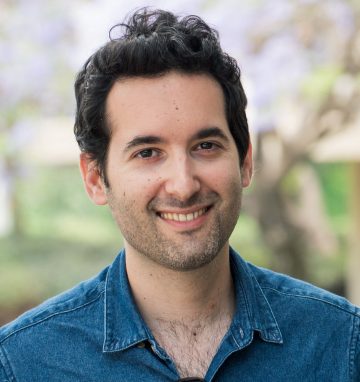NVivo | Qualitative Data Analysis Graduate Assistant
This September we were lucky enough to hire an amazing new GAA in Amir! He has an impressive resume in terms of his skill set, but perhaps his greatest contribution to our team is his love of both learning and teaching. Amir and David (Amir’s teaching partner) are constantly exceeding their own goals and looking for innovative ways to provide Graduate Students with the optimal learning experience related to qualitative data analysis. Recently we had the chance to catch up with Amir to ask him a few questions. 
What areas does your PhD. research focus on?
Through my PhD, I will explore the ways in which multimodal meaning-making can facilitate refugee students’ engagement and integration in school learning. Check out the full profile about Amir and his research on the Graduate Studies website.
Which Research Commons tools have you been able to use for your PhD work? How did you use them?
I have been using CAQDAS (Computer-Assisted Qualitative Data Analysis Software) for more than two years now. Initially, I used ATLAS.ti for conducting content analysis in my masters’ thesis, but it soon became the primary means by which I conduct literature reviews and qualitative research. Since the past summer, I have also been using NVIVO for similar purposes. CAQDAS has been invaluable for me in keeping an audit trail of my thoughts, readings, data analysis, and methodology. I am sure that it will continue to play a major role in my planned doctoral research, comprising qualitative, quantitative and participatory arts-based research. I also plan to continue using Refworks for managing references, and SPSS for conducting quantitative analyses.
What one thing about the Research Commons do you wish more graduate students knew about?
Our team’s incessant drive to learn more about the interface between software and different research enterprises means that we try to keep a healthy dose of flexibility in the services that we provide, spanning qualitative and quantitative data analysis, citation management, writing, and thesis formatting. Thus, every inquiry and context that fellow graduate students bring to our workshops and one-on-one consultations become shared learning opportunities. Don’t miss out on them.
To find out more about any of the resources that Amir mentioned, email us at research.commons@ubc.ca.
We are so excited and grateful to have such a passionate teacher and learner in Amir. There is no longer a need to feel intimidated by NVivo and qualitative data analysis. Come by and find out just how accessible NVivo really is.